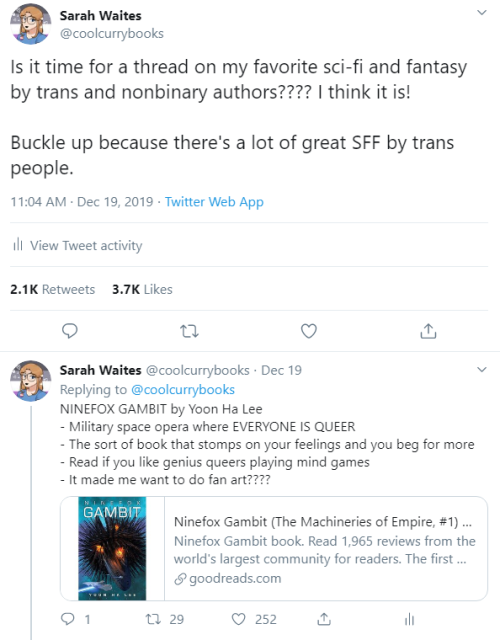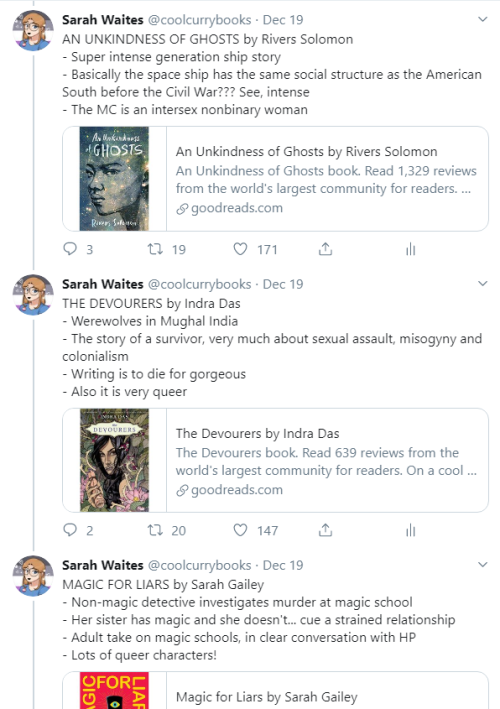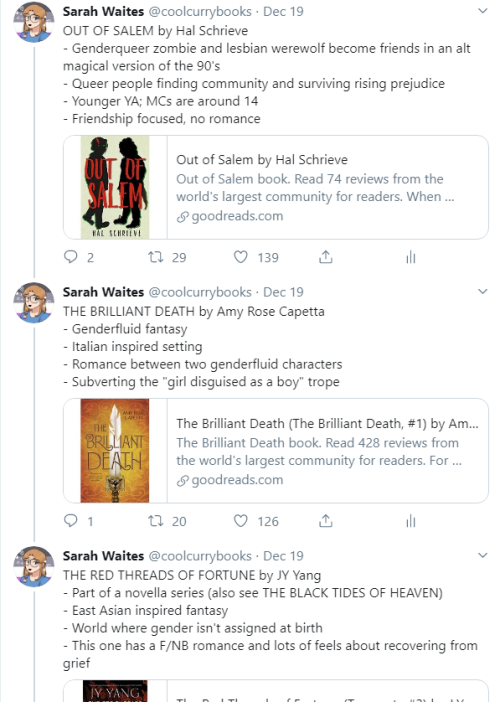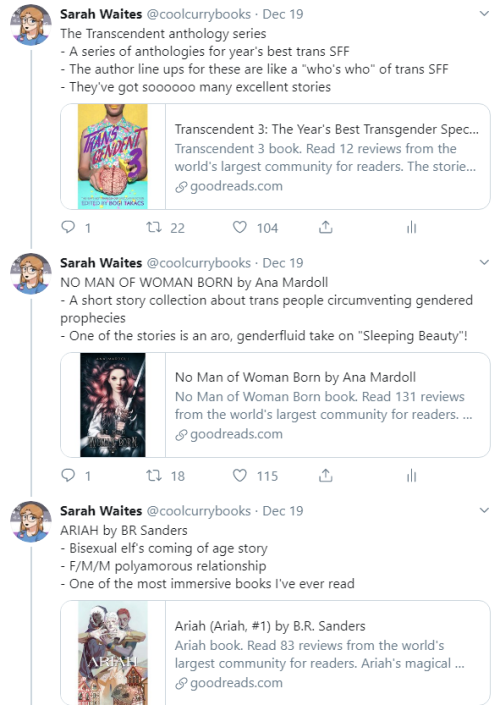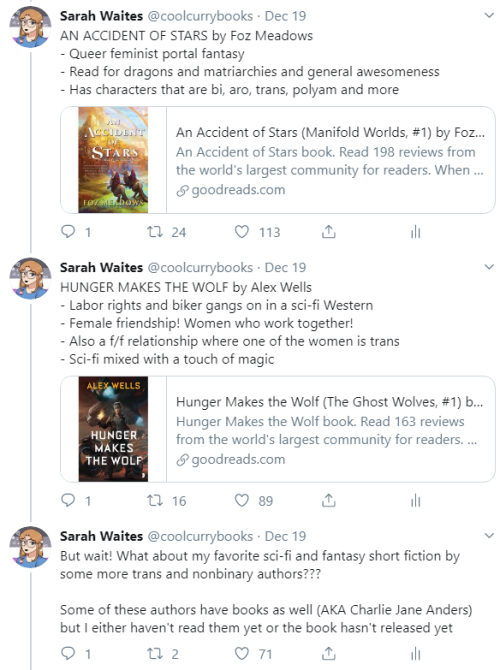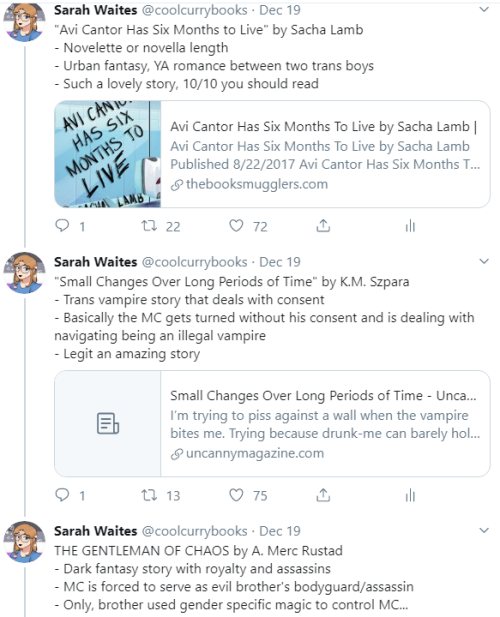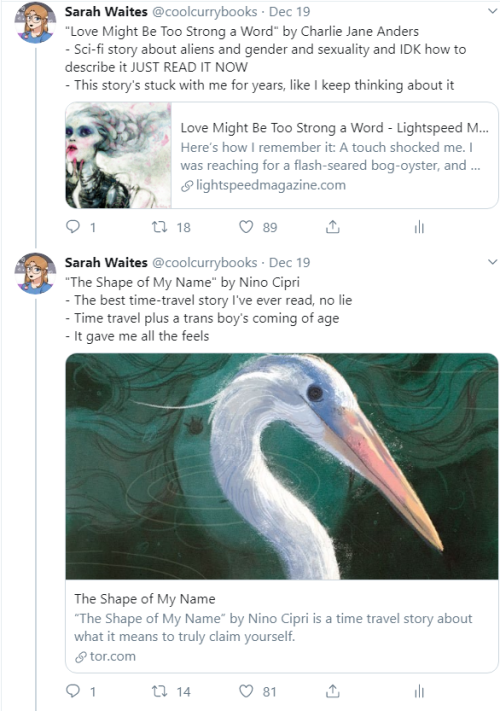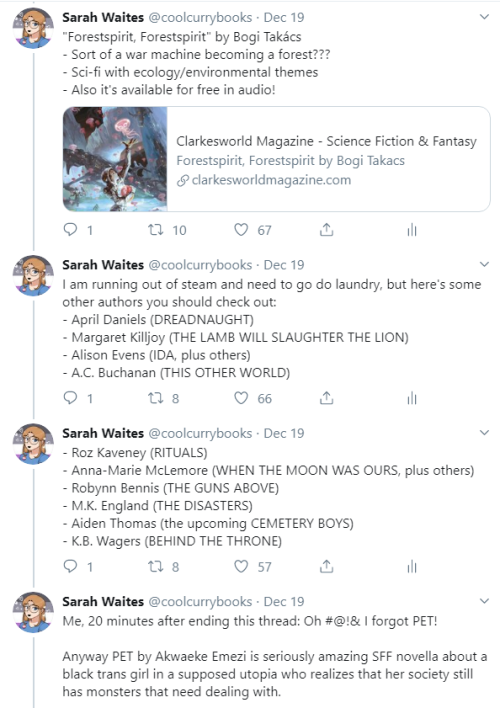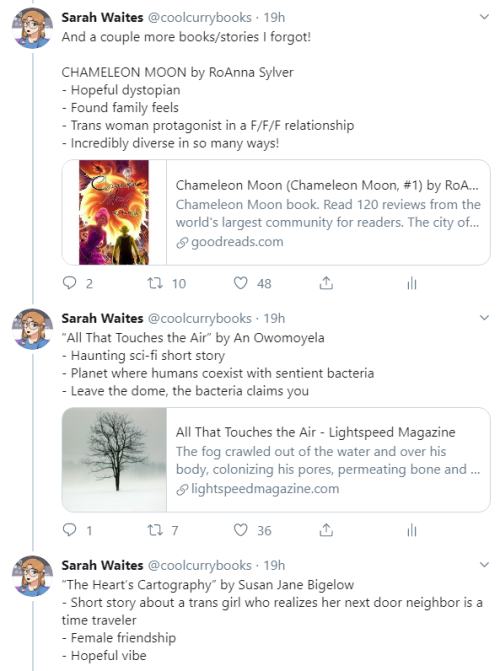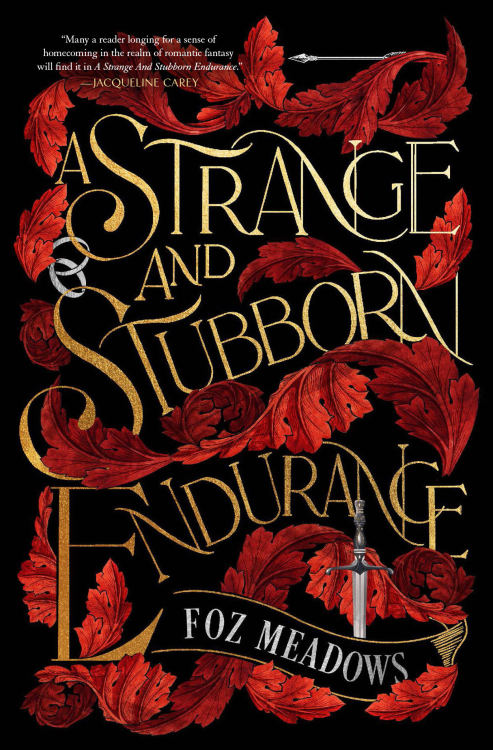#queer sff
Screenshots from my Twitter thread recommending science fiction and fantasy stories by trans and nonbinary authors. You can find the thread here.
Books mentioned in the thread:
- Ninefox Gambit by Yoon Ha Lee
- An Unkindness of Ghosts by Rivers Solomon
- The Devourers by Indra Das
- Magic for Liars by Sarah Gailey
- Out of Salem by Hal Schrieve
- The Brilliant Death by Amy Rose Capetta
- The Red Threads of Fortune by JY Yang
- The Transcendent anthology series
- No Man of Woman Born by Ana Mardoll
- Ariahby BR Sanders
- An Accident of Stars by Foz Meadows
- Hunger Makes the Wolf by Alex Wells
- Dreadnought by April Daniels
- The Lamb Will Slaughter the Lion by Margaret Killjoy
- Idaby Alison Evans
- This Other World by Andi C. Buchanan
- When the Moon Was Ours by Ana-Marie McLemore
- Ritualsby Roz Kaveney
- The Guns Above by Robyn Bennis
- The Disasters by M.K. England
- Cemetery Boys by Aiden Thomas
- Behind the Throne by K.B. Wagers
- Petby Akwaeke Emezi
- Chameleon Moon by RoAnna Sylver
(Free and online!) Short fiction mentioned in the thread:
- “Love Might Be Too Strong a Word” by Charlie Jane Anders
- “The Shape of My Name” by Nino Cipri
- “Avi Cantor Has Six Months to Live” by Sacha Lamb
- “Small Changes Over Long Periods of Time” by K.M. Szpara
- “The Gentleman of Chaos” by A. Merc Rustad
- “Forestspirit, Forestspirit” by Bogi Takács
- “All That Touches the Air” by An Owomoyela
- “The Heart’s Cartography” by Susan Jane Bigelow
If you’re a trans/nonbinary author writing sci-fi or fantasy, feel free to self promote on reblogs or in replies.
Post link
I’m thrilled to reveal the utterly gorgeous cover for my forthcoming m/m fantasy romance, A Strange and Stubborn Endurance, slated for release by Tor on 26 July 2022!
When Lord Velasin vin Aaro of Ralia is summoned home, he doesn’t expect to be offered a diplomatic marriage to a daughter of the ruling family of Qi-Katai in neighboring Tithena—in fact, he dreads the very thought of such a marriage. But when an ugly confrontation reveals Velasin’s preference for men to the Tithenai envoy, the envoy proposes a very un-Ralian solution: that Velasin marry the lord of Qi-Katai’s son instead.
Caethari Aeduria has known for years that marriage lay in his future; he just didn’t think it would happen with the Ralian man intended for his sister. When Velasin arrives in Qi-Katai, it soon becomes clear that an unknown faction is set against their union, while Velasin himself is wrestling with more than culture shock. As the danger escalates, Caethari and Velasin must learn to trust each other in order to survive—and maybe even make their arranged marriage a loving one in the process.
Post link
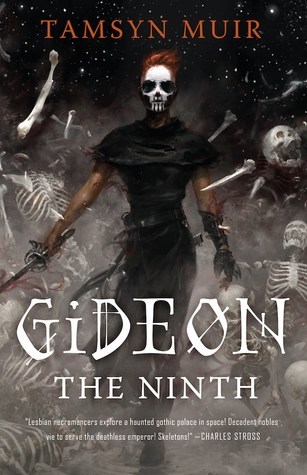
Release Year: 2019
Format I Read: audio book
Length:448 pages
Genres: Space fantasy
LGBT Rep: Lesbian main character
Spoiler-Free Review:
So this review might be a little controversial.
I have been thinking about this book for a few weeks now, trying to process it and figure out exactly what my opinions are. Looking back, I was just hoping that my opinions on it would improve. But they didn’t.
Gideon the Ninth was an extremely hyped book that if you didn’t know about already its probably because you aren’t following any book related news or social media. The words “lesbian necromancers in space” is literally written on the cover. That’s not technically wrong.
The thing I liked the most about this book was the humor. It was a lot more snarky and sarcastic than I expected it to be, and I thought it really worked and I really did enjoy it. Gideon is a fun narrator to be in the head of. That’s by far my favorite part of the book.
The rest of the book I’m severely neutral on. The worldbuilding was barely existent. A frame was given, but I never had a good idea of the scale of this, what anything was supposed to feel like or how dire any of this was actually supposed to be. Were these houses control of all of known existence or were they like, one tiny group in a massive galactic society? I literally had no idea. Also there’s apparently there’s a war going on. With who or what the scale of that is, again, no clue. The plot was kind of there. I constantly felt like I had missed something because I didn’t always know what was going on, but the more I look at other reviews, the more I think that’s just the book not explaining what is going on well. I never really cared much about any of the characters besides the two main ones, mostly because I wasn’t really given a reason to. When people started dying the most I felt was “ah man, I guess that sucks.”
But I’m here to talk about the queerness of this right? Well? They’re queer?
Gideon being gay is obvious and never really made into a Big Thing, so I’ll give the story that much. It managed to make an obviously queer character without there needing to be a romance. Speaking of, I’m not entirely sure there was a romance or not. When I finished the book, I wasn’t sure if that was supposed to be a full-on enemies-to-lovers trope, or just enemies-to-friends. I’ve seen people say it was a romance. I’ve seen people say there was no romance in this book. In some cases, ambiguity like that might be a good thing and well written. I don’t think this is the case of with Gideon the Ninth though. I think its just not good at making clear anything that’s going on in this book.
If this is a lesbian romance, oh boy. Not sure how I feel about that. I’ll discuss this more after the spoiler break. Regardless the blurb “lesbian necromancers in space” isn’t technically wrong but it also promises a bit more than the book actually gave.
Synopsis: I’m going to give the publisher’s synopsis because I don’t have the energy to try to compose my own synopsis for this:
“The Emperor needs necromancers.
The Ninth Necromancer needs a swordswoman.
Gideon has a sword, some dirty magazines, and no more time for undead bullshit.
Tamsyn Muir's Gideon the Ninth unveils a solar system of swordplay, cut-throat politics, and lesbian necromancers. Her characters leap off the page, as skillfully animated as necromantic skeletons. The result is a heart-pounding epic science fantasy.
Brought up by unfriendly, ossifying nuns, ancient retainers, and countless skeletons, Gideon is ready to abandon a life of servitude and an afterlife as a reanimated corpse. She packs up her sword, her shoes, and her dirty magazines, and prepares to launch her daring escape. But her childhood nemesis won’t set her free without a service.
Harrowhark Nonagesimus, Reverend Daughter of the Ninth House and bone witch extraordinaire, has been summoned into action. The Emperor has invited the heirs to each of his loyal Houses to a deadly trial of wits and skill. If Harrowhark succeeds she will become an immortal, all-powerful servant of the Resurrection, but no necromancer can ascend without their cavalier. Without Gideon’s sword, Harrow will fail, and the Ninth House will die.
Of course, some things are better left dead.”
The Good: I already said, they made it clear that Gideon is a lesbian without having to make a big deal of it. There’s also no homophobia or anything like that.
What Might Hinder You from Reading It: I’m not sure of any specific content warnings I’d point out, but if you don’t like undead necromancy stuff, then definitely don’t read this.
Would I Recommend It?: I don’t know. I wouldn’t try to stop someone from reading it or anything, but I probably wouldn’t suggest it as a good queer book. Or in general. It might make my list if I had to compile of list of queer sff, but it wouldn’t be toward the top.
Now for the Spoilers:
So two main things I want to discuss here. First is, did this book count as bury your gays? Because Gideon did die, right? Sort of? Again, I’m so unsure about everything in this book, that I’m not sure I’d even count it as this trope. Gideon DID die, but her consciousness survived somewhat? So does this count. I’m not sure, because I’m not entirely sure how “alive” Gideon still is.
The second thing is the relationship between Gideon and Harrow. I don’t dislike Harrow. Harrow is a very interesting character and I think worked well as a foil to Gideon. I do think that if that relationship was supposed to be a romance, its super duper yikes. Gideon literally described Harrow as a fascist ruler at one point. She’s basically being held in the Ninth House by Harrow against her will, then forced to go to this competition and help Harrow, against her will. Then she has to be subservient to Harrow literally the entire time. They start liking each other because circumstances force them to work together and understand each other, but the seriously unbalanced power dynamic remains the entire time. If Gideon was supposed to have romantic feelings for the woman who she described as being a fascist dictator, who gave no clear indications that she isn’t a fascist dictator…I don’t think I like that all that much. If it works for you, then great. It definitely isn’t something I like or would give up as a good example of a queer relationship in a book. Romantic or otherwise.

Release Year: 1872
Format I Read: audio dramatization (previously read the ebook)
Length:2h 22m
Genres: Horror, Gothic, Vampires
This review is going to be a little different.
Since we’re in the midst of spooky season and Halloween is less than a week away as I’m writing this, I decided now would be a good time to reread and discuss this book. The fact that audible is giving away a dramatization of this book for subscribers also helped, and though I’ve read Carmilla before, the dramatization is the version I went with for the reread. The dramatization is really good, all the actors are wonderful and Rose Leslie in particular really said gay rights with her performance.
Carmilla is a book that I’m always surprised by the people who do know what it is and the people who don’t. I feel like it has gotten a lot more recognition over the past few years with the web series of the same name being pretty popular among internet gays, but even some people who watched that web series didn’t realize that it was based on a novella from the 1800s (though it said as much in the credits).
In case you don’t know, Carmilla is a novella that revolves around a young woman named Laura who lives in Styria with her father, and under weird circumstances they take in a house guest: Carmilla, a girl who appears to be of a similar age as Laura. Assumptions can be made when I say that this is a vampire story, and its ones that predates Dracula by several decades. It’s also very gay and the namesake of this very blog you’re reading now.
I don’t think spoilers really ruin the book, and I think a lot of the “spoilers” that I’m going to discuss are rather obvious, but here is your one and only spoiler warning. Normally I’d be more careful, but as I said, this is a different sort of review.
Given that I named my blog Karnstein Review, after the Duchess Karnstein herself, it should be fairly obvious that I adore this book. It’s a book I knew at least hinted at some sort of sapphic relationship between Laura and Carmilla, but when I’d first read it, I assumed it would just be hints. And subtle hints at that. It was written in the 1870s, after all. Well, it’s very very very gay. I’m not sure how else to describe it other than that. The gayness is not only overt, they blatantly discuss love and romance and kiss each other. It’s a lot more than I expected from a 19thbook.
But, I also have to acknowledge that it is a 19th century book about a lesbian, and it’s one written by a man nonetheless. Things don’t end well for Carmilla and Laura’s relationship, and there’s pretty intense judgement on any kind of sexual feelings, much less sexual feelings between two women. The message that Carmilla’s seduction of Laura is wrong and immoral is as blatant as her seduction of Laura is. So why do I like this book so much?
Well, for one thing, I’ve always been a sucker for vampire stories (my god I only realized that pun after I wrote it). I think that a lot of queer people who grew up with religious backgrounds are drawn to vampires and vampire stories, and there’s a reason for that. Particularly with these older stories like Carmilla and Dracula, one of the major themes of vampire stories is sexual fear, desires, and moralizing about those things. Vampires represent something that we are told is dangerous. Something that can kill us and even hurt our very soul. Vampires will seduce you and take something from you that you need to live a normal happy life. They may even steal your salvation. In Carmilla when I was rereading it, I noted that her need for blood is never described as thirst or hunger. It’s called lust, specifically “lust for living blood.” Many who grew up with feelings for people of the same gender have been told similar things about those feelings. Vampires are those feelings. And these vampire stories were often written specifically to express and moralize about sexual feelings. Of course vampire stories are attractive to us.
With Carmilla the sexual moralizing plain, and it would definitely not be something I let fly in a modern book, but there’s something strangely familiar about it here. The book is told from Laura’s perspective, and she herself described her confusing and intense feelings for Carmilla. She’ll say she’s in love with Carmilla and repulsed by Carmilla in the same sentence and it doesn’t feel like a lie either time. She’ll be clearly very troubled by Carmilla’s overt flirtation and courting, but also keep doing things that put her close to Carmilla. She’ll keep flirting back and keep acknowledging the feelings that she has. It’s paradoxal, but it’s a familiar feeling. It’s someone just realizing that they have feeling for someone of their same gender and being very, very troubled by what that means. Laura’s words and thoughts feel very familiar to me, and I don’t think that J. Sheridan Le Fanu was purposely trying to accurately portray my own gay panic, yet he definitely did.
I don’t think that Carmilla is the perfect story. I keep imagining all the ways in which I’d like to rewrite it, which all involve me just giving Carmilla and Laura a happy ending, but I think it’s an important to the history of gay fantasy and horror. I also think that it’s a story that can still mean a lot and speak to queer people today, as evidenced by the very popular web series adaptation of it. It’s a book I would happily suggest, but it’s also a book I’d suggest you know what it is going in. It’s a lesbian vampire story written in the 1800s, and all the implications that come with that are true.
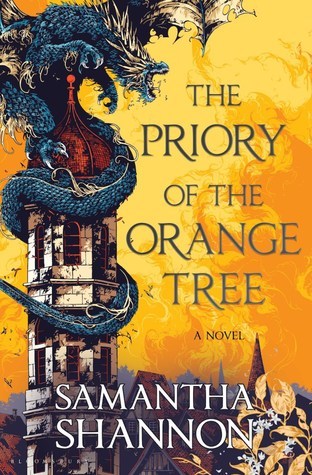
The Priory of the Orange Tree on Goodreads
Release Year: 2019
Format I Read: ebook
Length:848 pages
Genres: high fantasy
LGBT Rep: sapphic (I’m assuming lesbian) pov character, lesbian love interest/major character, gay man pov character
Spoiler-Free Review:
Ho-ly crap my dudes, I finally did it. I finally finished this absolute unit of book, and guess what? I really loved it a lot. This is exactly a book I’ve wanted for forever. A really killer high fantasy epic that also just happens to be really gay at times.
The main romance in the book is a f/f slow burn (yes, an honest to god lesbian slow burn), and I went in pretty much only knowing that, not even knowing who. At times I was definitely Sherlocking every single female character trying to figure out who the gays were, and I was pretty sure I knew who they were pretty on, but it takes a while for it to get going. When it does though…they sure do go, huh?
There is also an older gay male point of view character who’s gayness is pretty important to his story and motives, though (and this is a slight spoiler but it comes up pretty early on) the love of his life died some time before the story began.
This is a long, long book, and the Gays have issues throughout, some of it stemming somehow from them being gay or from their gay relationship conflicting against the society. Even with that, once their relationship really starts, there isn’t much in the way of outright homophobia. It’s hard to explain exactly, but there is the sense that being gay isn’t normal or completely accepted in the society, but also the relationship is pretty accepted once it gets kicked off. And the one plot issue that comes from someone trying to stop the relationship still doesn’t really stem from it being a gay relationship. It’s hard for me to explain further without going into spoilers.
But yeah, the gayness isn’t hidden by any means, but it also isn’t always in focus. It interweaves with the plot for sure, but the central plot isn’t about it by any means. It’s very much a high fantasy story with a high fantasy plot, and it just so happens that the main romance is f/f.
Synopsis: Honestly there is so much going on that I’m not sure how to set it up, so I’m just going to copy and paste the official synopsis from goodreads:
“The House of Berethnet has ruled Inys for a thousand years. Still unwed, Queen Sabran the Ninth must conceive a daughter to protect her realm from destruction–but assassins are getting closer to her door.
Ead Duryan is an outsider at court. Though she has risen to the position of lady-in-waiting, she is loyal to a hidden society of mages. Ead keeps a watchful eye on Sabran, secretly protecting her with forbidden magic.
Across the dark sea, Tané has trained all her life to be a dragonrider, but is forced to make a choice that could see her life unravel.
Meanwhile, the divided East and West refuse to parley, and forces of chaos are rising from their sleep.”
The Good: You get the sense of the threat of homophobia without ever actually having to face it. The romance is cute and is the opposite of rushed. All of the definitely defined gay characters feel like fully fleshed out characters. They have motives. They have good and bad qualities, and aren’t perfect but also are never demonized. They do good and bad things. Dare I say, they are treated like actual people?
What Might Hinder You from Reading It: You are utterly intimidated by the size of the book. It’s really hefty. You don’t like high fantasy. You don’t like dragons. You don’t like monarchy stories (which I often don’t but I still liked this).
Would I Recommend It?: YES. YES MY GOD YES.
Now for the Spoilers:
There are a few things I want to spoil for anyone that is interested in spoilers or who have specific concerns?
1) Yes, the gays all survive to the end and have mostly happy endings.
2) The main couple has a somewhat bittersweet ending that I don’t want to spoil, but it isn’t immediately happy for them. There is the promise of them getting their happy ending in the future, but there is still time before that will happen.
3) It’s almost comedic how every single time there is a major development in the f/f relationship, SOMETHING HAPPENS and there is some threat or complication that must be dealt with. They always do deal with it, but it always means that they are in some way apart for a length of time.

Release Year: 2017
Format I Read: ebook (part of In Our Own Worlds anthology Tor.com gave out for free during Pride Month 2019)
Length:131 pages
Genres: historical fiction
LGBT Rep: So many lesbians. F/F romance between main characters and multiple other F/F couples that either show up or are mentioned.
Spoiler-Free Review:
Another book I knew nothing about before going into it except that it was queer, as it was featured in the In Our Own Worlds anthology. Throughout the beginning chapters (the framing device) I was a bit confused, not only about what the story was, but who the queer characters were, and frankly I was little concerned based on how it began. However, once what I’ll call the “Actual Story” began, everyone was gay and the gay jokes were superb.
This book is as much about the hidden histories of 1940s San Francisco as it is about the queer characters, and I’m sure I could have appreciated that element more had I ever been to the city or knew much about it, but as it is, I still liked the story a great deal.
There are some elements that could detract from the story a little. There’s some definite u-hauling, though the story does give a reason for it. But yeah, those lesbians fall in love real fast. The way the story is structured is also somewhat confusing. The fantasy element of this story is pretty sparse, to the point where you might forget it’s a fantasy story until the end when the fantasy becomes important for the climax.
Overall, though, I really did like the story a great deal, and thought that it ended with really interesting implications
Synopsis: The majority of this book takes place in 1940s San Francisco, and revolves around lesbian women living in a time where they’re either seen as deviants or a spectacle to be gawked at. The story shifts in point of view frequently—especially toward the beginning of the novella—in a way that is somewhat confusing to understand what the story actually is at first. But eventually, the story does come to focus on two women who meet, fall in love, and struggle to live together through an increasingly intense amount of Heterosexual NonsenseTM the world throws at them.
The Good: The entire focus is on queer women, their communities, and their forced secretive history. There are frank conversations about things that I think are phrased somewhat more modern than they would actually would have been, but that’s not necessarily a bad thing and it makes some of those conversations seem still relevant today. There were some discussions about sapphic identity that I personally related to and liked a great deal.
What Might Hinder You from Reading It: There’s a lot of sexism, homophobia, and anti-Asian racism (usually specifically anti-Chinese) throughout the book. It’s never made out to be acceptable by the book and the point is largely to show the cruelty of the time period and specifically the tourists and outsiders there to be entertained by the “exotic” and “deviant”. But it’s definitely present and I could see people not wanting to read it regardless of how its handled.
There also should be a warning about relationship abuse, including physical violence. The abuse doesn’t come from any queer characters but it involves them.
Would I Recommend It?: Yes, so long as you’re aware of the above caveats.

